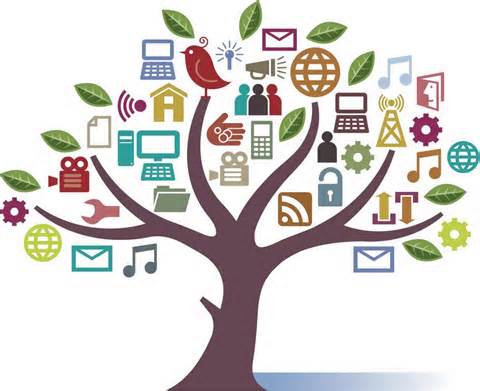
Please note our upcoming symposium “Social Impact of Audiovisual Media” – 12th – 13th August 2021 (12th: 4 – 8 PM CEST, 13th: 11 AM – 5 PM CEST):
Latest research and knowledge exchange news at Bournemouth University

Please note our upcoming symposium “Social Impact of Audiovisual Media” – 12th – 13th August 2021 (12th: 4 – 8 PM CEST, 13th: 11 AM – 5 PM CEST):

***Please find below updated information regarding the call for papers***
Bournemouth University will host the 19th EUROGRAPHICS Workshop on Graphics and Cultural Heritage (EG GCH 2021) from 4-6 November 2021. The workshop will engage practitioners and researchers across the world working at the interface of novel 3D digital technologies and cultural heritage. This year, circumstances depending, EG GCH will be run in a hybrid format, organised by the University of Bournemouth, UK. This will allow those who are able to attend the conference in person to do so, while those that can’t, especially if the pandemic is still raging at the time of the conference, will also not miss out on this exciting event.
The event seeks different types of contributions including:
Note down these important dates:
All accepted research and short papers will be published by the Eurographics Association and archived in the EG Digital Library.
The authors of up to five selected best papers will be invited to submit an extended version to the ACM Journal on Computing and Cultural Heritage (JOCCH).
The full call for papers and key dates can be found on the workshop website. The fantastic keynotes will be announced soon.
Please consider submitting and attending the workshop.
The EG GCH 2021 organisation committee
SPEED, a European Interreg project, with Bournemouth University as one of its partners, is holding a conference in September aimed at those interested in new technologies (such as smart port applications), business models and ecosystems that can lead to smarter ports.
The TomorrowPorts conference takes place in Antwerp, Belgium from 23-24 September. During the event participants will learn from use cases from smart port pioneers, get inspired by state-of-the-art smart port technologies, find tech talent to fuel the digital transformation, and get in touch with the latest thinking and frameworks. More information and tickets for TomorrowPorts are available here.
SPEED – the Smart Ports Entrepreneurial Ecosystem Development – aims to build an ecosystem for smart port app development in Belgium, France, the Netherlands, and the UK, bridging the gap between the worlds of European ports and the nascent data science – IoT market.
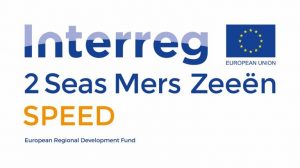 The conference also provides the opportunity to nominate port solutions for an award to show that collaboration within port ecosystems is key to creating the Smart Ports of Tomorrow. The winner and two runners up are entitled to a money prize, exposure, networking opportunities, free co-working space, and access to the virtual development lab and specific toolkits. The award ceremony will be held at the TomorrowPorts Conference in Antwerp, on Friday September 24. Find out more about the award and on how to register your case here.
The conference also provides the opportunity to nominate port solutions for an award to show that collaboration within port ecosystems is key to creating the Smart Ports of Tomorrow. The winner and two runners up are entitled to a money prize, exposure, networking opportunities, free co-working space, and access to the virtual development lab and specific toolkits. The award ceremony will be held at the TomorrowPorts Conference in Antwerp, on Friday September 24. Find out more about the award and on how to register your case here.
 As it was announced earlier this week, on 22nd July from 10am to 3pm, RDS will host an online workshop for those interested in applying for MSCA Postdoctoral Fellowships (MSCA PF) 2021 call. Please email OD@bournemouth.ac.uk by the end of the next Monday 19 July if you’d like to attend; both supervisors and potential fellows are welcome to participate. Link to join the event to those registered will be sent early next week.
As it was announced earlier this week, on 22nd July from 10am to 3pm, RDS will host an online workshop for those interested in applying for MSCA Postdoctoral Fellowships (MSCA PF) 2021 call. Please email OD@bournemouth.ac.uk by the end of the next Monday 19 July if you’d like to attend; both supervisors and potential fellows are welcome to participate. Link to join the event to those registered will be sent early next week.
Proposal submission deadline for MSCA PD 2021 call is 12 October 2021, the deadline for submission of Intention to Bid form to RDS is 16 August 2021.
The workshop will consist of two sessions led by Research Facilitator International Ainar Blaudums. In the morning session (10am to 12 pm) we will review general MSCA PF rules and 2021 call novelties. In the afternoon (1pm to 3pm) we will focus on proposal preparation providing useful tips and advice. Both parts will end with Q&A sessions.
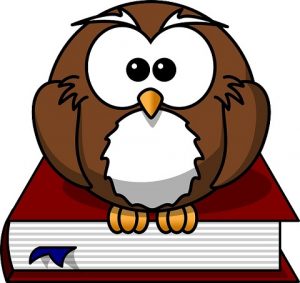 Marie Skłodowska-Curie Actions (MSCA) are part of the First Pillar within the new Horizon Europe (HEU) framework programme. These actions are open to all research areas and support fundamental research through to near market activities. MSCA Postdoctoral Fellowships (formerly Individual Fellowships) are aimed at individual fellows who already have a doctoral degree and wish to enhance their creative and innovative potential and acquire new skills through research and training activities supervised by experienced academics.
Marie Skłodowska-Curie Actions (MSCA) are part of the First Pillar within the new Horizon Europe (HEU) framework programme. These actions are open to all research areas and support fundamental research through to near market activities. MSCA Postdoctoral Fellowships (formerly Individual Fellowships) are aimed at individual fellows who already have a doctoral degree and wish to enhance their creative and innovative potential and acquire new skills through research and training activities supervised by experienced academics.
The overall structure of the proposal template and information requested to be addressed in the proposal has not changed significantly from Horizon 2020. However, some of the text has been revised, and a few additional subheadings have been included. The guidance on how to complete Part B of the proposal is no longer included in the Guide for Applicants but is included in the template itself. More information is available on the MSCA-2021-PF call page under ‘topic conditions and documents’ section.
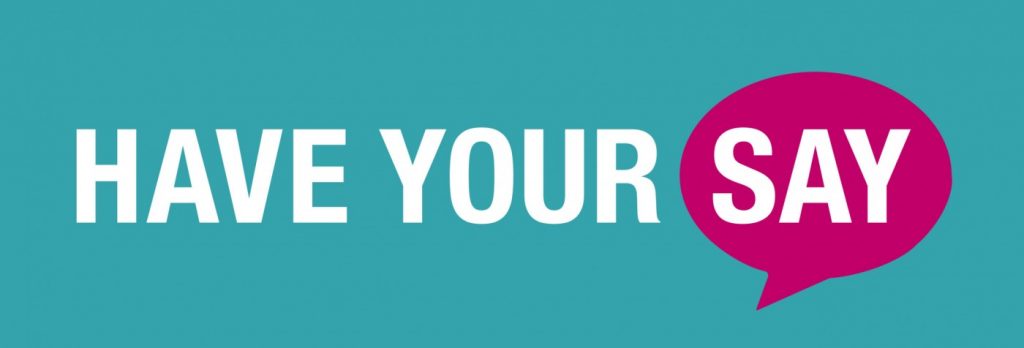
How well does BU currently support public engagement? What are we doing well, and are there areas that we could quickly and efficiently target to make a big difference?
We’re looking to answer those questions and others, to take stock and plan where to focus our efforts. We’ve created a survey to seek feedback from as many members of BU staff as possible – academic and professional services.
We’ll analyse the results using the NCCPE’s EDGE Tool, and will share our results for discussion in the next academic year.
To share your feedback, complete the short survey below. It should only take a few minutes and all questions are multiple-choice. Your responses are completely anonymous. We require you to be signed into a BU account only to ensure that all responses are from BU staff.
We appreciate the time taken to complete this survey, so are offering the chance to win a £50 Love2Shop e-Gift Card, redeemable at 40+ retailers. At the end of the survey you’ll be directed to a separate form to collect your details for the prize draw.
The survey closes on Friday 13 August, so please provide feedback before then. If you have any questions about the survey, please contact publicengagement@bournemouth.ac.uk.
 New Scientist Live is making a return in January 2022 and is set to relaunch as a hybrid event, combining the best of live and virtual experiences. Welcoming over 9,000 visitors, 45 speakers and dozens of exhibitors in-person for talks, discussions and hands-on demonstrations.
New Scientist Live is making a return in January 2022 and is set to relaunch as a hybrid event, combining the best of live and virtual experiences. Welcoming over 9,000 visitors, 45 speakers and dozens of exhibitors in-person for talks, discussions and hands-on demonstrations.
The new hybrid format will reconnect a live audience with the stimulating experiences and engaging activities that New Scientist Live is famous for, in a safe environment. Plus it will reach new audiences around the world by bringing an exciting programme of online-only content.
New Scientist Live Manchester will take place on 29-31 January 2022 at Manchester Central. The first two days are open to all, with the final day dedicated to schools and home learners.
The organisers are looking for inspiring speakers and performers, engaging experiences and activities. Applications are welcome from early-career and underrepresented scientists and communicators.
Please contact Jacqui McCarron for the speaker nomination form which will need to be returned by Friday 23 July 2021.
Jacqui.McCarron@NEWSCIENTIST.COM
If you would like advice on planning or submitting your application or to discuss ideas, please contact Adam Morris Engagement Officer publicengagement@bournemouth.ac.uk

Live telepresence through new platforms such as Zoom, Teams, Facetime, Jitsi etc have become fully embedded in our lives. Like it or not this way of being together is here to stay. In the post-Covid push for a zero-carbon economy, international travel will be radically curtailed and remote working will become if not the norm then far more common. Welcome to a world of virtual assemblies and blended communications.
This symposium aims to recuperate the rich resource of spatial and temporal experimentation that artists and creative researchers have developed over many years. Our conviction is that these experiments will help us move towards richer and more embodied forms of virtual encounter. In addition we aim to use the event to crystalise these ambitions in the form of proposals for exhibitions and/or a publication, a critical primer, an ABC of Telepresence, a phenomenology of Telematics.
The talks and presentations will be on the themes of embodiment, society, aesthetics and politics, refracted through the lens of the following questions:
•How is the proliferation telepresence changing what it means to be reflexively ‘present’ to one another?
•What scope might there be to shape new directions for these platforms that go beyond the ghostly dance of endless ‘talking-heads’?
•How are we to avoid the emergence new forms of alienation?
•Given that billions of live feeds can be seen as just one more stage in a process of endless fragmentation what are the possibilities for creating a third space between tangible and mediated presence, stepping outside the usual binaries of the real and the virtual?
•How do we provoke creative responses that break the frame and go beyond the limitations of existing platforms?
9.30 – 9:45 Introduction
9:45 – 10.30 Ghislaine Boddington : Reader in Digital Immersion Reader, Digital Immersion – University of Greenwich – Creative Director, body>data>space and Women Shift Digital- The Internet of Bodies
10.30 – 11.15 Caroline Nevejan : Chief Science Officer City of Amsterdam www.nevejan.org http://openresearch.amsterdam/
11:15- 11:30 Break
11.30 – 12:15 Atau Tanaka : Professor of Media Computing Goldsmiths, University of London, https://www.gold.ac.uk/computing/people/tanaka-atau/
12.15- 13.00 Paul Sermon: University of Brighton, Telematic Quarantine project http://www.paulsermon.org/quarantine/ & UKRI-AHRC project Collaborative Solutions for the Performing Arts: A Telepresence Stage https://www.telepresencestage.org
13:00- 14:00 Lunch
14.00 – 14:45 Herman Maat /Karen Lancel: Artists and researchers considered pioneers in exploring the tension between embodied presence, intimacy and alienation, social cohesion and isolation, privacy and trust in posthuman bio(techno)logical entanglement with (non-)human others. https://www.lancelmaat.nl/about/about/
14.45 – 15.30 Maria Chatzichristodoulou: Associate Dean Research Kingston University, Editor-in-Chief, International Journal of Performance Arts & Digital Media (IJPADM)
15.30 – 16.15 Ali Hossaini: Co-director of National Gallery X, online gallery https://www.nationalgallery.org.uk/national-gallery-x
16.15- 16:20 Concluding remarks
The 2022 call for the prestigious scheme is now open; It offers early career researchers the opportunity to develop programmes for the BBC.
If selected, you’ll workshop ideas with BBC producers, get media and public engagement training, and a platform for informing and influencing public opinion, policy and practice.
The applicants who will go forward to the next round will demonstrate:
-how one area of their research could make a strong, clearly expressed and engaging programme for Radio 3 of up to 45 minutes
-how this new research could have the potential to either change public opinion, influence policy or make a difference to people’s lives
-creativity, originality and the potential to talk and write about other areas within the arts and humanities, in an accessible and interesting manner, particularly to a wider listening audience
-that you are comfortable talking and writing about ideas from beyond your own research area, in an accessible and interesting way
-a wide range of interests through their review and description of their current research
-high standards of scholarship – clearly explained in interesting, well-written, jargon-free language, that’s editorially and stylistically suitable for a BBC audience.
To get a good idea of what the call is for, we recommend you listen to work by previous New Generation Thinkers on the BBC website before you apply. You can also find more examples and other information about the scheme on AHRC’s New Generation Thinkers webpage.
There is a webinar for applicants on the 21st July at 14:00 – registrations to open soon, keep an eye on the call pages.
At BU we are setting up a webinar after the AHRC webinar, with Sam Goodman, Media, previously successful candidate on this call, who can share with you his experience and respond to any questions you may have.
BU webinar: 28th July 3-4
If you wish to book a place , please email Organisational Development.


At BU we promote and celebrate the work done to engage public audiences with BU research.
The public engagement with research team in Research Development and Support (RDS) can help promote your event to relevant audiences through our regular newsletter and social media channels. It also helps us to stay informed on the public engagement work being carried out by BU.

Please note: we are keen to promote BU public engagement with research activity wherever possible, but completing this form does not guarantee that we will be able to promote your event. To be considered for inclusion, your event or activity must be;
Event descriptions may be edited for consistency in style with other content. If you have any questions about this process, please contact us.
We will re-share this form once a month.
Over the 15 months many academics have learnt to use online tools to communicate with colleagues, students, the media, politicians and the general public. The COVID-19 pandemics forced us to introduce (more) virtual classrooms, internet-based tutorials, online marking, Zoom and Teams meetings (and other platforms!) as well as online conferences and workshops, albeit each with their own limitations. In general, we often marvel about the internet and online conference technology as well as value the reduction of our carbon foot print, reaching global audiences and so on.
The past three weeks I attended three international conferences in three countries without leaving my living room, including the postponed 2020 ICM (International Confederation of Midwives) conference.  Perhaps there is an element of online-working fatigue, but I am beginning to see more and more disadvantages of online conferences. First, the contact with fellow presenters, chairs and the audience is more superficial than at a physical conference. At a conference held in person you meet people over lunch or coffee or people simply stop you in the corridors of the conference centre to discuss or challenge your paper or express their ideas for future studies.
Perhaps there is an element of online-working fatigue, but I am beginning to see more and more disadvantages of online conferences. First, the contact with fellow presenters, chairs and the audience is more superficial than at a physical conference. At a conference held in person you meet people over lunch or coffee or people simply stop you in the corridors of the conference centre to discuss or challenge your paper or express their ideas for future studies.
Secondly, many conferences seem to use two online systems and have different ways of running online conferences, at one of the recent conferences the presenters and the audience were in different cyber spaces, so as a presenter you had no idea how many people attended or how the audience reacted to what you have just said. Moreover, in one conference any questions people in the audience had written in the chat box were invisible to the speakers. These questions had to be read out by the chair, who was tasked with linking the two cyber spaces, that of speakers and that of the audience. At another conference the chair largely let the speakers deal with questions in the chat without any direction or guidance, as a consequence I was still answering questions in the chat long after the next speaker had started.
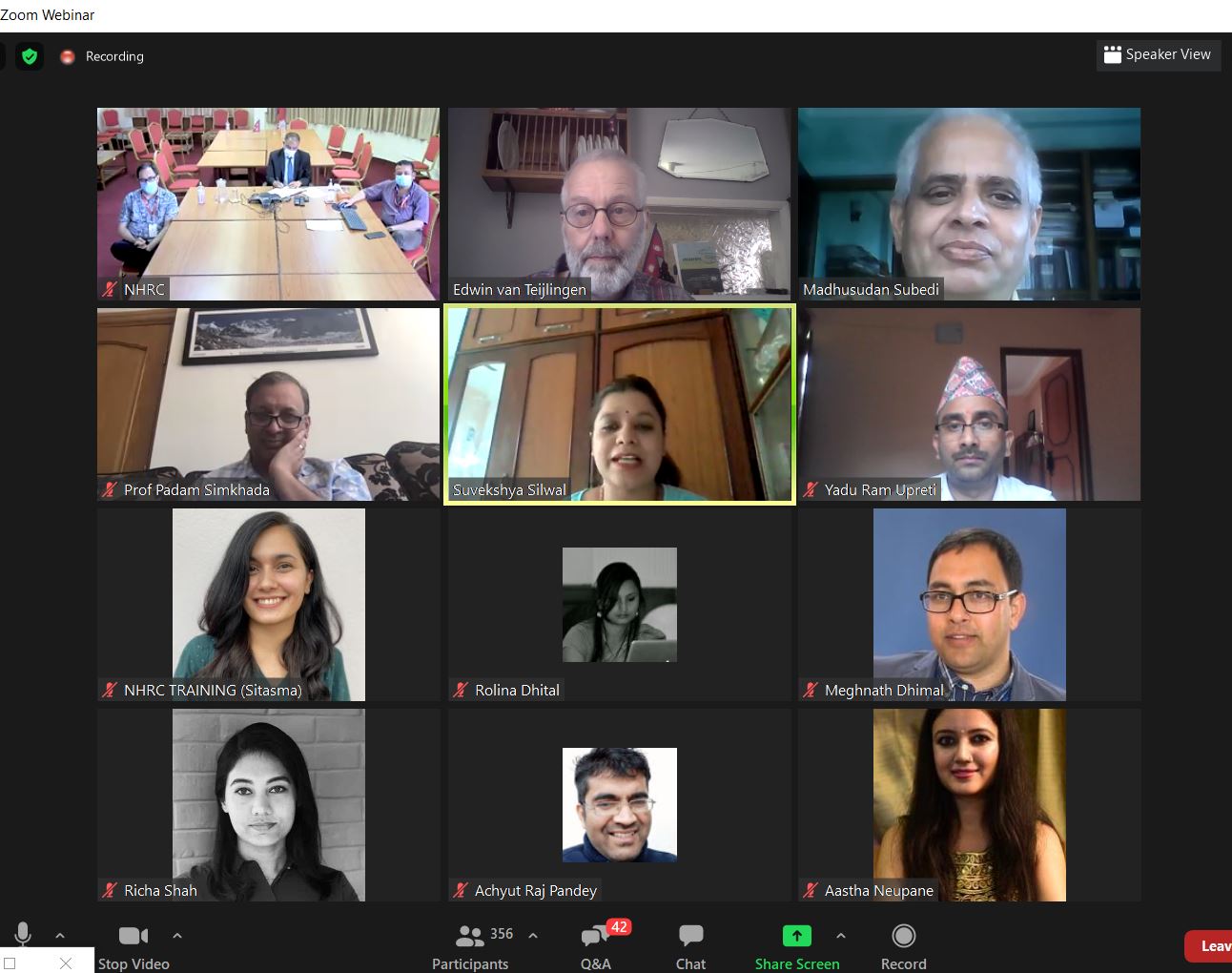 Thirdly, because I was not physically away I didn’t attend as many of the sessions at any of the three recent conferences as I would have liked to. This issue is similar in nature as the ‘old’ problem of attending a face-to-face conference at your own institution. Since you are not away your students, colleagues, etc. manage to find you and expect you to do something else instead of attending the conference. Fourthly, you don’t meet up in person with international colleagues, therefore, you don’t get a chance to discuss long-term ideas, plans, problems over a meal and a beer.
Thirdly, because I was not physically away I didn’t attend as many of the sessions at any of the three recent conferences as I would have liked to. This issue is similar in nature as the ‘old’ problem of attending a face-to-face conference at your own institution. Since you are not away your students, colleagues, etc. manage to find you and expect you to do something else instead of attending the conference. Fourthly, you don’t meet up in person with international colleagues, therefore, you don’t get a chance to discuss long-term ideas, plans, problems over a meal and a beer.
I am still positive about online conferences, but perhaps not as enthusiastic as I was in a BU Research Blog in April last year! In this blog I pointed out that Donald Nicolson in his book Academic Conferences as Neoliberal Commodities raised the question about return of investment of a conference [1-2] not just for the conference organisers (and funders) but also for individual academics. Internet-based conferences are cheaper than face-to-face conferences although often not free, two of my three international conferences had a registration fee, moreover there is the opportunity cost for the academic in attending a conference, especially if one does not receive the traditional benefits of meeting like-minded people in person.
Some thought for Sunday morning.
Prof. Edwin van Teijlingen
References:

organised by Catalin Brylla (Bournemouth University), Jens Eder (Film University Babelsberg KONRAD WOLF) and Tobias Gralke (Film University Babelsberg KONRAD WOLF)
12th – 13th August 2021 (12th: 4 – 8 PM CEST, 13th: 11 AM – 5 PM CEST)
Free registration:
Many films, videos and television programmes are produced with the intention of creating “social impact” – for example, reducing social discrimination, spreading environmental awareness or changing destructive habits. Media practitioners and researchers discuss a variety of impact strategies such as the emotional persuasion of large or small audiences, participatory production with affected communities or the targeting of individual decision-makers. At the same time, there is considerable disagreement about the feasibility and ethics of certain impact strategies, as well as about the concept of impact itself. The symposium aims to stimulate an exchange between media practitioners, researchers, activists and other stakeholders to better understand the “impact” of audiovisual media in its various dimensions, challenges and forms, be they fictional or non-fictional.
Speakers: Angela Aguayo, Naima Alam, Florence Ayisi, John Corner, Frédéric Dubois, Patricia Finneran, Peter Hartwig, Samantha Iwowo, Dan Jackson, David Knight, Bettina Kurz, Andrew Lowenthal, Sue Sudbury
Details of the programme will follow.
Dr Festus Adedoyin shares his experience of presenting at a BU Café Scientifique event on 1 June 2021.
Café Scientifique presents such an interesting opportunity to discuss academic research with a diverse and extraordinary audience. With events currently taking place online, there were members of the public in the audience from several countries. This public engagement pushed the boundaries of my creativity in trying to be as clear as possible, particularly in ensuring that the public can interact with my research without much complexity.
I discussed the application of some machine learning tools (ARIMA, Prophet model, Long Short-Term Memory and Recurrent Neural Network) to predicting the macroeconomic trend for the UK and what the post-pandemic future looks like. This is because, amidst the noise and confusion about the future, new and advanced scientific tools let us have a glimpse of the future, as well as the potentials for swift economic recovery. Overall, I asked the question: when compared with another similar economy like the US, is there something the UK can do differently?
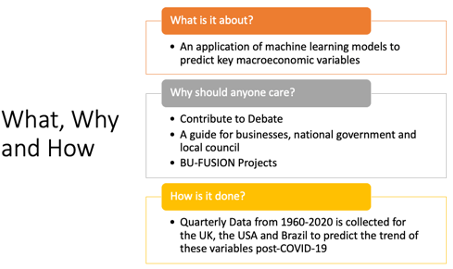
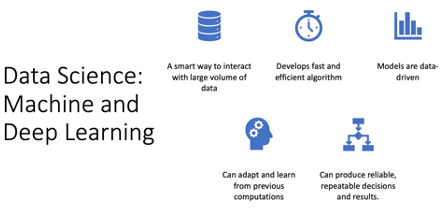
I agreed to participate in this public engagement, for my personal development, and because I love to receive feedback, new directions and insights on the why what and how of my research. While there are several economic reports from the news and government agencies, it is important to provide some evidence-based discussions around how the happenings in the economy can affect everyone at an individual level.
Before the event, I practised discussing my research with my wife who is a care worker and has no clue what machine learning algorithms mean. That helped me discover several ways to represent the ideas during the talk.
The event went well. There was a great turnout and lots of fantastic questions at the end. I think as a researcher we may get caught up in the ‘how’ of our research and not go deep in dissemination and public engagement. Therefore, constantly thinking and rethinking about the implications and interpretation of research findings and what it means for everyone should be a skill we all develop as researchers.
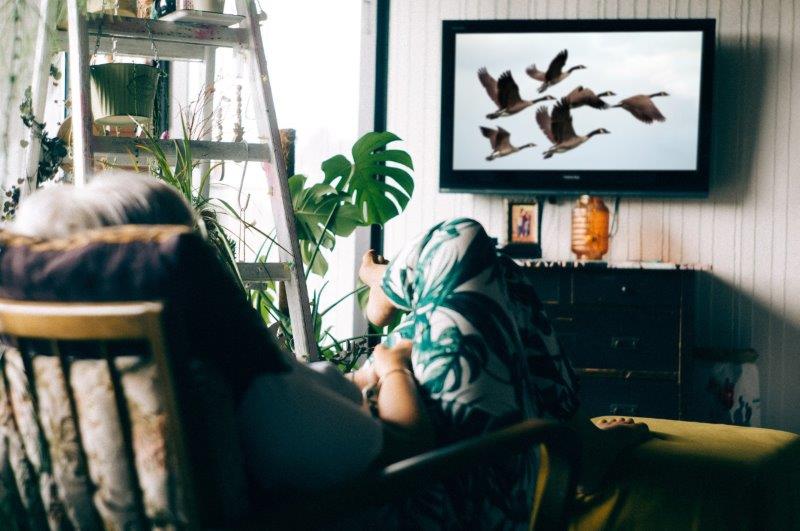
At Café Scientifique, you can explore the latest ideas in science and technology in a relaxed online setting. Enjoy listening to a short talk before engaging in debate and discussion with our guest speaker and audience.
We’ll be joined by Dr Sue Thomas and Dr Hiroko Oe on Tuesday 6 July, from 7.00pm until 8:30pm.
In 2013 Dr Sue Thomas spoke at Cafe Sci about her book “Technobiophilia”. At that time, when ‘digital detoxing’ was popular, the idea of using technology to experience nature seemed transgressive. But the COVID-19 pandemic has demonstrated that experiencing the natural world via our computers, phones and TVs can contribute to wellbeing in many ways. Whether it’s watching animals on live-streaming webcams, sharing beautiful photos, or viewing nature programmes like Blue Planet, we have learned how to achieve a satisfying tech/nature balance. Dr Sue Thomas asks whether COVID-19 will change our view of digital nature and Dr Hiroko Oe reports from a Japanese perspective.
Attendance is free but booking is required

This is a reminder about our ‘Virtual Writing Workshop’ on 29 June 13.30 – 16.30pm. We will have 2 blocks of writing (just over an hour each and then a break in the middle to get a coffee and chat to other researchers if you wish). If you can’t make 13.30 you can join a bit later – no worries.
This is for anyone (PhD student, academic, full time researcher) who wants to/needs to write and would like to do that in the company of colleagues from across the university.
Please come prepared with something you are working on. We recommend turning off email notifications and anything else that could distract to help us get the most out of the time – but your decision – it’s your time!
Please click this Zoom link to join us.
Kind regards, BU Research Staff Association
Join Dr Karen Kirkham, Integrated Care System Clinical Lead, Dorset, to find out how Dorset is transforming the smartphone into a medical device at the next meeting of the Dorset ICS Innovation Hub Programme Group
 This event takes place on Tuesday 29 June 1pm
This event takes place on Tuesday 29 June 1pm
For more information, please contact: sarah.chessell@uhd.nhs.uk
To join this event on Tuesday 29 June, please click here
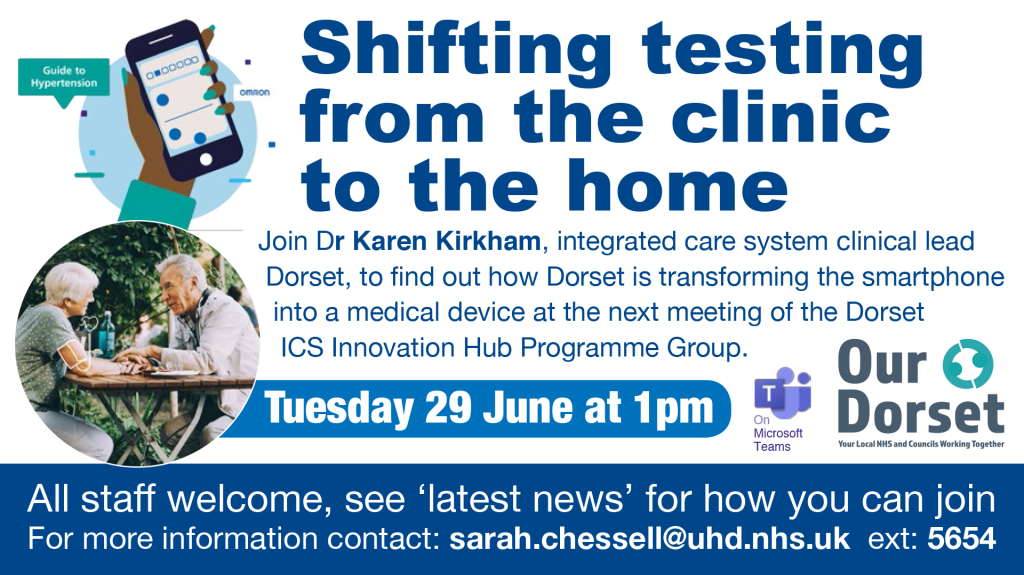
Research Staff Coffee Break – The Place to Be!
On Thursday, 10 June, we held our second Research Staff Coffee Break and were delighted to welcome some new faces. We discussed recovering as a researcher from COVID-19-related disruption and lots of other topics. It’s always interesting to hear other people’s experiences, pick up tips, learn about each other’s research and meet colleagues with similar interests – even when we are working in different faculties and totally different specialities!
RSA Speed Networking
One intriguing suggestion was the idea of the RSA hosting ‘speed research networking events’ where attendees meet each other one-on-one in breakout rooms and present their research interests briefly. This could be a great first step in finding future collaborators and is in keeping with the university’s emphasis on inter-disciplinary research. In addition, we agreed that hearing about research from a wide range of disciplines and faculties fosters an exciting cross-fertilisation of ideas. We’re still considering this idea – but watch this space for future speed research coffee dating opportunities!
RSA Writing Workshop
We spent a lot of time talking about the need to publish, and agreed that making time to work on publications in a busy schedule is a constant challenge. One of the solutions that we considered was the idea of dedicated, regular (fortnightly or monthly) RSA writing workshops to create structured time and space to write. We thought this was a great suggestion and a very practical way of helping each other and the research community! We discussed whether we ought to conduct these face-to-face or online only; in the end, we agreed that a mixed or hybrid model would suit the needs of most people as all colleagues may not be able to be physically present on campus. In terms of the structure, we agreed on a 2-hour-long workshop with breaks in between.
So, we plan to host the first writing workshop on the afternoon of 29 June (1.30 pm – 4.30 pm). This is for anyone (PhD student, academic, full time researcher) who wants to/needs to write and would like to do that in the company of colleagues from across the university. If you would like to attend, please find the Zoom meeting link / log in details below.
Join Zoom Meeting
https://bournemouth-ac-uk.zoom.us/j/87978735999?pwd=aG5qN0xBb1ZjZVkxVmI1RkRSVUNPdz09
Meeting ID: 879 7873 5999
Passcode: 9t@BPf1M
RSA Feedback Survey
As the RSA, we want to run events that are helpful for you as researchers at BU. If you have 5 minutes to spare, it would be great if you could fill out our survey so that we can make sure the RSA is putting on events which you would find useful – please click the link (it should only take 5 minutes to complete):
RSA Representatives Contact Details
If you would like to contact any of the RSA reps to discuss any issues confidentially, our contact details are below:
University Research Staff Reps:
Michelle Heward mheward@bournemouth.ac.uk
Ashok Patnaik apatnaik@bournemouth.ac.uk
Faculty of Health & Social Science:
Preeti Mahato pmahato@bournemouth.ac.uk
Rachel Arnold rarnold@bournemouth.ac.uk
BU Business School:
Rafaelle Nicholson rnicholson@bournemouth.ac.uk
Ashok Patnaik apatnaik@bournemouth.ac.uk
Faculty of Media & Communications:
Oliver Gingrich gingricho@bournemouth.ac.uk
Ethzaz Chaudhry echaudhry@bournemouth.ac.uk
Faculty of Science & Technology:
Kimberley Davies daviesk@bournemouth.ac.uk

Thank you to Dr Lyle Skains for your very interesting and informative presentation this Wednesday.
Title: Interactive Digital Narratives for Health: Approaches to using storygames as intervention and education
For anyone who couldn’t make it or would like to recap on the information please email adrc@bournemouth.ac.uk to request a copy of the presentation slides or the recording of the seminar which we can send on to you.
Abstract: Interactive digital narratives (IDNs) (a.k.a. digital fiction, storygames, hypertexts, interactive fiction) are an emerging form of engaging storytelling adaptable to many devices, platforms, purposes, and audiences. This talk highlights pilot studies in creating and using IDNs as health and science education-through-entertainment on the Playable Comms project (playablecomms.org). As an interdisciplinary network of projects, Playable Comms combines science and arts research and practice to develop a model for creation of health- & sci-comm IDNs, and evaluates their efficacy, attempting to measure message uptake from outright rejection to holistic adoption engendering associated behavioural change. IDNs can be used in schools, GP waiting rooms, on tablets and smartphones; interactivity significantly increases retention, particularly when incorporated into media that audiences voluntarily and eagerly devote attention to.
Best wishes
The Ageing and Dementia Research Centre
This is a reminder that on Thursday 22nd July 2021 from 2-4pm, RDS will be hosting a virtual STEAMLab event under the strategic investment area (SIA) of Medical Science.
As there are a limited number of spaces remaining, we have extended the timeline for applications. Therefore please apply for a space by 5pm Monday 28th June. 
We ask all participants to download and complete the Application Form and return this to Lisa Andrews.
For more information, please see our previous blog post.
If you have any queries prior to submitting your application, please contact RDS Research Facilitators Lisa Andrews or Ehren Milner.